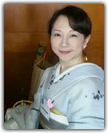Contemprary Tanka Poet Mariko Kitakubo.
Publications the Poet.
My Anthologies and other publications including an audio CD since 1999.
INDIGO
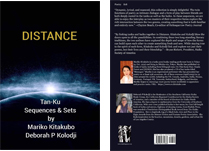
| Title | : | DISTANCE Tan-Ku Sequences & Sets |
| Issued | : | 2023 |
| Publisher | : | Shabda Press |
For the details, refer to Shabda Press web site.
■ About "Tan-Ku."
A new genre of poetry that Ms. Deborah P Kolodji, an excellent haiku poet living in the US and a good friend of mine for fifteen years, and I founded together.
In the form of Tan-Ku, tanka and haiku (or haiku and tanka) are woven alternately. "Tan-Ku Sequence" is composed of two or more works of tanka and haiku, and "Tan-Ku Set" is composed of one each. Tan-Ku Sequence and Tan-Ku set are complete with its title.
■ Received Certificates of Recognition from California State Legislature
I am honored to receive Certificates of Recognition from the California State Senate and Assembly.
It is a great honor for me to be recognized for my small international activities and to have our co-authored book, DISTANCE, read by them. I humbly receive these recognitions and would like to keep moving forward in my activities.
Thank you very much from the bottom of my heart.
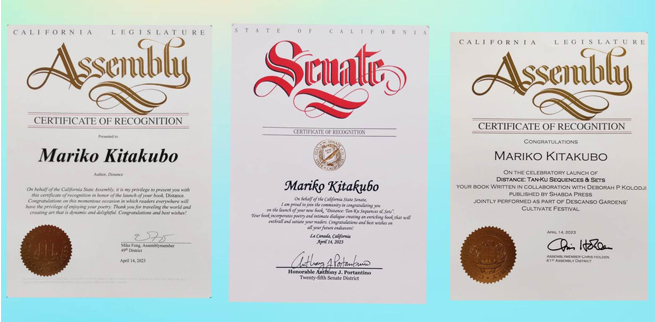
(Left)
CALIFORNIA LEGISLATURE Assenbly
CERTIFICATE OF RECOGNITION
Presented to: Mariko Kitakubo Author, Distance
On behalf of the California State Assembly, it is my privilege to present you with this cenificate of recognition in honor of the launch of your book, Distance. Congratulations on this momentous occasion in which readers everywhere will hm·e the privilege of enjoying your poetry. Thank you for traveling the world and creating art that is dynamic and delightful. Congratulations and best wishes!
Mike Fong, Assemblymember 49th District April 14, 2023
(Middle)
STATE OF CALIFORNIA Senate
CERTIFICATE OF RECOGNITION
Mariko Kitakubo
On behalf of the California State Senate, I am proud to join the community in congratulating you on the laundh of your new book "DISTANCE: Tan-Ku Sequences & Sets."
Your book incorporates poetry and intimate dialogue creating an enriching book that will enthrall and satiate your readers.
Congratulations and best wishes on all your future endeavors!
La Canada, California April 14, 2023
Honorable Anthony J. Portantino Twenty-fifth Senate District
(Right)
CALIFORNIA LEGISLATURE Assenbly
CERTIFICATE OF RECOGNITION
CONGRATULATIONS MARIKO KITAKUBO
ON THE CELEBRATORY LAUNCH OF DISTANCE: TAN-KU SEQUENCES & SETS YOUR BOOK WRITTEN IN COLLABORATION WITH DEBORAH P KOLODJI PUBLISHED BY SHABDA PRESS JOINTLY PERFORMED AS PART OF DESCANSO GARDENS' CULTIVATE FESTIVAL
APRIL 14, 2023 ASSENBLY MEMBER CHRIS HOLDEN 41ST ASSENBLY DISTRICT
■ Blurbs
"Dynamic, lyrical, and nuanced, this collection is simply delightful. The twin functions of poetry as intimate dialogue and a form of play between friends are both deeply rooted in the tanka as well as the haiku. In these sequences, we are able to enjoy the interplay as two masters of their respective forms explore the rich intersection between the two genres, creating something that is both familiar and entirely new."
- Clayton Beach, Co-editor of Heliosparrow Poetry Journal
"By linking tanka and haiku together in Distance, Kitakubo and Kolodji blow the doors open to all the possibilities. In combining these two long-standing literary traditions, the two authors have explored the depth and scope of how the forms can build upon each other to create something fresh and new. While staying true to the spirit of each form, Kitakubo and Kolodji link and explore not just their poems, but their lives and their friendship."
- Bryan Rickert, President, Haiku Society of America
■ Book Review
-William Scott Galasso - California State Poetry Society website
You can find the book review on this page as well.
-Vicki Miko - Amazon webpage
You can find the book review on this page as well.
-A A Marcoff - British Haiku Society, BLITHE SPIRIT Vol. 33 No. 4
You can find the book review on this page.
INDIGO
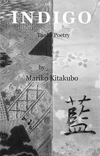
| Title | : | INDIGO |
| Issued | : | 2016 |
| Publisher | : | Shabda Press |
For the details, refer to Shabda Press web site.
Click here to purchase the book on Amazon or Barnes &Noble.
Contribution to INDIGO
"The Japanese, for over a thousand years, have composed the tanka and considered it their most important form of poetry. In the nineteenth century, the spread of European poetry induced many Japanese poets to doubt that a poem in only thirty-one syllables could be anything more than the record of a momentary sensation. Ishikawa Takuboku, though famous as a rebel poet, answered the doubters, "Although a tanka may last only a second, it is a second that will not return again, no matter how long one lives. I believe that such moments are to be cherished, I do not wish to let them escape." He added somewhat cynically, "One of the few blessings that we Japanese enjoy is having the tanka."
Takuboku retained the traditional thirty-one syllables of the tanka but divided them into three lines, instead of the traditional single line, giving the form greater dramatic possibilities.
The poems of Mariko Kitakubo, both in Japanese and in English, contain a combination of the thousand year old and the most modern. Her Japanese poems have the traditional number of syllables and the English poems are divided into five lines as in tanka:
ga no kage no/ fui ni ookiku/ nari yukeri/ aragai gataki/ houyou no nochi
suddenly
the shadow of a moth
growing larger ---
after an embrace
difficult to resist
The Japanese poems are in ancient, not modern speech. But the division of the poems into two sections in the Japanese and five in English makes the poems seem strikingly modern. Mention of a moth, an insect appealing to English poets but shunned by Japanese poets, may seem to separate the two worlds, but the embrace brings them together."
-Donald Keene, recipient of a medal of honor from the American Academy of Arts and Letters, winner of the Arts and Culture Prize of the Fukuoka Prize
Cicada Forest
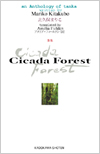
| Title | : | Cicada Forest |
| Issued | : | 2008 |
| Publisher | : | Kadokawa Shoten |
To purchase, contact Pacific Asia Museum in Pasadena CA, U.S.A., Ms. Tai Ling Wong, Bookstore Manager, via e-mail (tailingwong@yahoo.com)or phone (1-626-449-2742), or e-mail myself.
>>click here to view Pacific Asia Museum website
Cicada Forest takes us on a sweeping journey through a progression of themes, subject matter, and settings that reflect Kitakubo's life as woman, daughter, lover, and mother... Kitakubo's voice is often positively elemental, felt as a force of nature... Yet, ironically, the finest poems in Cicada Forest appear to concern themselves with small things:
how small
I really am
here between
a potato field
and the wide sky
it's myself
a hundred years later
I'm scooping up,
both hands full
of warm sand
What is large here is Kitakubo's transcendent, personal vision of human experience, a vision and sense that places such things as potato fields and handfuls of beach sand at the center of the world's stage . . . Kitakubo is a poet whose voice and sense of the world place her directly within that magnificent literary genealogy that includes Murasaki Shikibu, Ono no Komachi, Ootagaki Rengetsu, Saigyo, Ryokan, and Yosano Akiko.
--Excerpted from "Preface to Cicada Forest" by Michael McClintock,President, Tanka Society of America
Review:
by Giselle Maya(A Journal for Linking Poets "LYNX")
Cicada Forest by Mariko Kitakub. Translated by Amelia Fielden.Published by Kadokawa Gakugei Shuppan Ltd. 5-25-5 Hongo Bunkyo-ku, Tokyo 113-0033 Japan. Price of book $15.Reviewed by Giselle Maya
The book Cicada Forest has an elegant cover designed by Yoko Hasegawa, with a preface by Michael McClintock.
The entire book is a delight to read. First, there is “New Writing” with four sections in which the reader is introduced to the poet’s life through her lyrical and sparse approach to tanka writing. Glimpses of her life are revealed, always with great finesse and restraint: the reader will discover unique and memorable tanka. The sensitive translations by Amelia Fielden make each word count, with her light touch.
I feel the plight
of endangered creatures
on this planet,
like they’re looking at me
with my child’s eyes
Kitakubo’s love of the earth and our universe is expressed in poems such as:
the sky dissolves
and is flooded with rain -
prostrating myself
I press my lips
to the soaked plain
A sense of the vastness of our space for living and moving is accentuated by her writing about wings. The theme of wings is woven through the entire book, creating a feeling of the ancient desire of Icarus for flight and transcendence, the possibility of a scintillating dance in space and time.
oh give me wings
for my back,
shining wings
which seek
only virtue
How exhilarating this feels! And expressed as a tanka it is simply inspiring.
The entire collection of Mariko Kitakubo’s tanka, spanning the years from 1999 to the present time is her journey as woman, mother,and poet. Her family relationships become apparent; countries, seasons, mindscapes and seascapes, life and death touch the reader’s sensibility. Both a vastness and a microscopic focusing on detail are crafted into these tanka. Especially skillful are the poems relating to the raising of her son. Wistful, ringing true to me a mother of a son and daughter, she explores in a gentle manner with sentiments which have not yet been the subject matter of tanka so far.
Maintaining a comfortable distance, Mariko explores the presence in her life of her young son:
twenty years ago
separating
from me
certain cells became
a charming male
seeing you off
suddenly I recollect
the day you were born -
now in mid-winter
there’s the Orion star
onto my withered heart
falls a small star -
with you
I share
a single tomato
There is a melding of human experience with nature: a Shinto sense of a unifying principle where one touches the earth with reverence and gratitude.
in the midst
of this rain
they appear,
the mountain god and
the god of the stream
beside a quiet man
sea birds
one after another
dropping from the sky
like sacred messages
These are tanka jewels rising from the pages of Cicada Forest and waiting to be sung and interpreted by a graceful dancer.
On the far side of the spectrum are a few poems which explore darker human experiences, what Mariko so aptly calls “the desolation of Descartes” No permanent peace and serenity havebeen attained by human beings and there will be times of pain.
cutting my foot
on a tree-root
I felt
the desolation of Descartes
slowly slide into me
And yet, the entire book radiates confidence in the human species and its endeavors and one feels encouraged to continue one’s life-work
I have no way
of being really sure
about things,
yet my nails are growing
so confidently
Review:
by: Moira Richards (Women Writers)
07/09
Cicada Forest is a beautifully made book containing more than 600 tanka presented bilingually with the single vertical line of Japanese kanji on the right-hand pages, and Amelia Fielden's English translations in five line poems on the pages opposite. Mariko Kitakubo began publishing her tanka in 1999 and has been reading her poems regularly as performance poetry since 2002 in Japan, Australia, Canada and the USA.
On This Same Star
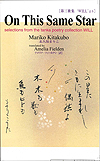
| Title | : | On This Same Star |
| Issued | : | 2006 |
| Publisher | : | Kadokawa Shoten |
To purchase, contact Pacific Asia Museum in Pasadena CA, U.S.A., Ms. Tai Ling Wong, Bookstore Manager, via e-mail (tailingwong@yahoo.com)or phone (1-626-449-2742), or e-mail myself.
>>click here to view Pacific Asia Museum website
It has been decided recently that my third collection of poems "Will", in which a lot of elegies on my mother who passed away in 2003 are covered, will be translated into English. The encounter with Ms. Amelia Fielden, who takes care of the translation, dates back to 1999, the year in which my first collection of poems was published. She came to know by chance a collection of poems "Nami no Kotoba de Tsutaetai (I Want to Tell You with the Words of Waves)" during her stay in Japan that year, and, to my delight, she had a very favorable impression on it. Since then, I started to be in contact with her living in Australia.
I did not even imagine at all that my works being translated into English, an idea I vaguely dreamed of, would be realized this early.
I sincerely hope that this collection of poems will give more people, living in countries where Japanese is not spoken, an opportunity to get familiar with and have an interest in Tanka.
Mariko Kitakubo 2006 (from the preface of "On This Same Star")
Kokako 6 (April, 2007): edited by Owen Bullok and Patricia Prime
On This Same Star -selections from the tanka poetry collection WILL by Mariko Kitakubo, translated by Amelia Fielden, Kadokawa Shoten, 2006, 189pp, $US $15. ISBN: 04-651667-4
These tanka are presented in sequences of from three to thirteen links. I was very shocked by the concision of the first individual tanka; it makes for a fine opening to a book:
to go and gaze
at the stars, how lovely -
none of us
is born
for suffering
And I concur with the sentiment!
The book comes alive with the moving sequence 'To My Mother.' Almost every link tears at the emotions through a spare veil of reflection and the need to accept death. Whether waiting in Outpatients or beside her mother's bed when her mother has not spoken for ten days, we see the world of the poet changing:
unconscious
my mother sleeps on,
beside her
I drift away a little
from the time of this world
This is the effect that the immanence of death has, time is altered, the common reality shaken.
The sequence 'The Ruined Village' is written in response to an exhibition of photographs of Chernobyl's nuclear disaster. Kitakubo finds the perfect chilling simile, "where like a scream / the silence shines." In that disjunction between a scream and silence, between thins that should not sit together, she gives an impression of life irrevocably altered. It is not difficult then to generalize from this situation to others where the ashes of death are still falling.
Memories of the poet's mother now pervade the poems, though other relationships come into view. There is a sense of re-enactment with respect to the hereditary effect of the father's personality from whom she carries "a kind of craziness." I liked this tanka for its ability to show what has been lost and at the same time suggesting a change in the social order and the function of marriage:
my ring finger
once showed that
being bound
and being loved
were one and the same
I think the word 'bound' helps her particularly. The obvious sense of constriction is softened by overtones of care, of wounds being bound. Set amongst so many poems about the death of her mother, this tanka also resonates with them, in the binding of a body into death (recent or ancient).
The poet meets her mother in dreams but also on occasions when there is that mystical sense of the other - a hand laid on her shoulder at the funeral, for example. The poet observes herself as having become a "sort of aged doll." There is also the sense of having realized the intrinsic isolation of the human being, that was perhaps not obvious when her mother was alive. She misses her mother in almost every situation, as if this becomes a new presence, a new manifestation of that other. In the forest it is "as if there is / nothing else with life / but me." This grammar is intriguing, and I am sure it is more that just the difficulty one may expect of translation. This person is being translated into a new reality and that is captured. I think the poet is conscious of the creative outpouring that has occurred for her since the death of her mother. This pain and paradox seems consistent with the passion that writing often embraces.
There is sheer emotive beauty in a piece like this:
leaving a waterfall
tumbling into
my heart's river,
he went away
my special one
The romantic is obvious, it is not shielded from our eyes, and she makes no apology fo r the intensity of feeling, it just sticks in our gut.
Later, she is apprehensive about new love:
I'm hesitant
to fall in love -
on my lips
the taste of blood
quietly revives
The animism of this is quite a surprise.
Some of the poem shows an incredible aptness in the choice of English word. For example,
when I remove
my contact lenses
they say to and fro
dissolving today
in their solution
Through 'dissolving' we are given a wonderful piece of imagery as well as the sense of time passing, concerns of the day left aside. Of course, 'solution' also has a double meaning and builds on the effect of the previous line, though perhaps unnecessary.
The sequences become increasingly varied, with some links veering towards the surreal, but it's all to the good. You should get hold of this book.
Book Review: “RIBBONS” Summer 2006, (Tanka Society of America Journal) reviewed by Dave Bacharach
On This Same Star by Mariko Kitakubo selections from the tanka by poetry collection WILL with translations by Amelia Fielden. Kadokawa Gakugei Shuppan Ltd. 5-24-5, Hongo Bunkyo-ku,Tokyo 113-0033 Japan; ISBN4-04-651667-4 C0092. Printed in Japan. $15 US.
https://www.kitakubo.com/
On This Same Star is the title of a new book of tanka by Mariko Kitakubo, a Japanese poet who has published three earlier collections: I Want To Tell You in the Words of Waves (1999, Artland), When the Music Stops (2002, Nagarami Shobo), and WILL (2005, Kadokawa Shoten). On This Same Star is a volume of 263 tanka selected by Australian poet and translator, Amelia Fielden from the larger collection, WILL.
Over the three year period between the poet’s last publication and the collection from which this book comes, she experienced major losses: She divorced; her only son left for college; and her beloved mother died. The death of her mother was overwhelming. Kitakubo had been an only child whose father abandoned bother mother and daughter early on, and the two of them grew so close that Kitakubo feels their identities had merged:
we were more like
identical twins, than
mother and daughter ---
now only my shadow
has a heart-beat
From this terrible loss, and her general state of loneliness, she pieces together a lyrical mosaic of grief, sadness, and the search for affirmation. Her tanka are nakedly honest, personal, exquisitely crafted, and intensely lyrical. Over twenty percent of them directly or indirectly reference death. Some express self-revulsion, other bitterness towards her ex-husband; some are darkly ambiguous. Kitakubo has a complex mind, and her preoccupation with death is expressed by complex metaphors. In one tanka, she voices her desire to return to the safety and anonymity of her mother’s womb, where she and her mother were-literally one and the same; in another, she pictures herself “a sort of aged doll” passing through time as an image in her mother’s funeral portrait. Later, she imagines her spirit vanishing, leaving behind and empty husk in the form of her moonlit bath tub; and further on, “thinking of the endless/amount of blood there’ll be,” she hesitates to pull the thorns from her heart, but is caught in a dilemma: If she doesn’t pull them out, she won’t die. Elsewhere she writes:
I’m going to fly off
somewhere or other ---
actually
I’m not a person,
just a piece of fluff
Within the book’s context, this pathetically expresses pain so intense that the poet’s own personality is subsumed by it. The countervailing attempts at renewal and salvation occur with apparent randomness, and though forming a minority of the total selection, they are signs of health and healing. Kitakubo often uses as a positive symbol; those tanka where she discovers it deep within herself or within other things, possess a calm acceptance that eases her pain. In one poem she associates herself as well as her poetic voice with water, and by that combination suggests that her poetry is her salvation. In another, spiritual and physical renewal is suggested by biblical language and baptism imagery:
| I've gone on not putting it all into words-now sounds from the river within me grow louder |
was the end of things really the beginning? the form of the prone body is brimming with water |
In other poems, she refers to her past existence as an ocean; or describes fish from a valley stream “glittering still/behind my eyes ---; “or thinks of the moisture within her left over” “of a summer’s night;” or notices how precious the trees are with “boisterous water” in their tops; or, most tellingly, washes seaweed in water, a symbolic act of curing the madwoman she saw herself as in a dream the night before. Interestingly, at one point she indicates that her son is studying hydraulics. Other symbols of spiritual restoration are human wings, willful flight into the air, dancing, and direct confrontation. She says that it’s “time for me / beat my wings, as in / a string ensemble” an indirect reference to the writing of lyric poetry. Dancing occurs not only as an affirmation of her spirit, but in celebration of freedom from her unhappy marriage. At one point, her mother is imagined in a symbolic paradise: “through dancing waters / in the flower gardens / she smiles at me. “Kitakubo sometimes confronts what’s happened with a determination to make the best of it. In the most striking example, she recognizes the impossibility of grasping all that lies ahead after her mother’s death, acknowledges how feeble are the survival tools at he disposal, but vows to continue her life:
time after death
immeasurable ---
I will pull together
a bundle of dim lights
and walk on
The symbols within Kitakubo's poems are personal and reliably consistent. Besides the positive ones mentioned, there are unmistakably negative symbols: sand, dust, wind and snow. When these words or the images associated with them appear in a poem, physical or spiritual death is nearby. Sand is especially deathly in any form or amount, whether it be fleck in her mother's eye, or the gigantic sand clock inside which the poet finds herself trapped and slowly buried "with quantities of sand / falling clown on me / from time to time." Wind, a typical Japanese symbol, is used here as an agent of spiritual destruction and identity loss. Kitakubo associates snow, another common symbol, with heaven: When it occurs in her tanka, death is calling, but it's a benign death, promising a kind of quiescent beauty and possible reunification with her mother:
brushed by your hand
I would turn into
powdery snow
and that instant
be called to Heaven
Formally, Kitakubo's technique is rich and varied. Though she tends to write in bipartite structures such that her tanka's first three lines are set off from the last two, there are frequent variations in which the pattern is reversed, with the first two lines set off. Often, at least one part of the tanka, or all of it, lacks a subject. However, many of them do have a subject; some have more than one, and many run straight through as one syntactically connected expression. Kitakubo also makes use of repetition, re-voicing words, phrases, or entire lines. This often has a strong rhythmic impact as well as an insistence on meaning, as in the following, and in another instance, one word repeated in the entire last line achieves a powerful emphasis, the repetition itself a demonstration of the theme:
| for no reason they raise their voices in shrill cries, for no reason they cease --- Heaven’s twilight cicadas |
with my strength I cannot halt a boulder once it has set out rolling rolling |
Kitakubo's style is accessible due to the scrupulousness of Fielden's translation. She has been careful to retain the original phrase order and line pattern whenever possible, and when the original tanka was vague, she assures us that she kept the translation vague. And the flow of the Japanese 5-7-5-7-7 pattern that Kitakubo loves has been transliterated by Fielden into smooth under the fingers; the text is clear and easy to read. The cover shows a quietly tasteful design incorporating Japanese calligraphy:. It's a handsome volume that's a pleasure to hold. And pleasure, Kitakubo assures us, is an important part of our natural life. For despite the pain and grief expressed in these pages, the first tanka of the book establishes a basic truth that throws the rest into stark relief:
to go and gaze
at stars, how lovely---
none of us
is born
for suffering
On This Same Star
by Mariko Kitakubo
A Review by Robert D. Wilson
On This Same Star is an appropriate title for Mariko Kitakubo's new book of tanka, masterfully translated into English by Amelia Fielden of Australia. Kitakubo takes readers of her poetry into a world both personal and reflective.
I'll close both ears
and listen
to the ancient ocean's
tumult
within my body
Of course, the world she paints for us with her words would not be credible if her skill as a poet were run-of-the-mill. Her tanka poems call to mind Yosano Akiko and Fumiko Nakajo, two female Japanese poets whom I have the deepest admiration and respect for. And not because her poetry resembles theirs. It does not. But like the aforementioned poets, she speaks intimately about her feelings utilizing yugen, makoto, and good form.Take the above tanka. When a person cups his hands over his ears, shutting out outside sound, he hears a sound mimicking ocean waves. Kitakubo is referring in her poem to meditation. Deep breathing, slowly, listening to one's body, shutting out the sensory world. Interesting is her use of the word, "tumult". It is a word that can be interpreted in more than one way. The poet hints, does not "say all", and invites readers to come into her world in an experiential way. The poet doesn't write tanka as a channel to become famous. She carefully, perhaps even spiritually, chooses her words, crafting a poem that leaves a reader wondering, and thinking. Aiding her in this is her use of lyricism, yugen (mystery and depth), respect for the genre, and a willingness to share her makoto (truth and beauty) in a personal, intimate manner.
Take the above tanka. When a person cups his hands over his ears, shutting out outside sound, he hears a sound mimicking ocean waves. Kitakubo is referring in her poem to meditation. Deep breathing, slowly, listening to one's body, shutting out the sensory world. Interesting is her use of the word, "tumult". It is a word that can be interpreted in more than one way. The poet hints, does not "say all", and invites readers to come into her world in an experiential way. The poet doesn't write tanka as a channel to become famous. She carefully, perhaps even spiritually, chooses her words, crafting a poem that leaves a reader wondering, and thinking. Aiding her in this is her use of lyricism, yugen (mystery and depth), respect for the genre, and a willingness to share her makoto (truth and beauty) in a personal, intimate manner.
trying to escape
memories of submersion
in the pale blue waters
of my mother's womb,
I blow big bubbles
I should have
asked for help . . .
I've been searching
for mother's face
in the mirror
with what am I
to protect myself . . . no way
the blade of a human
will cut through spirits
of mountains and rivers
Kitakubo's sense of rhythm is refreshing and worthy of study. Lyricism is essential to good tanka, yet many poets have strayed away from lyricism, especially those poets writing English language tanka. Says Kitakubo's translator, Amelia Fielden:
There are poetic stress accents in Japanese, so traditional poetry is given rhythm by writing to a pattern of 5/7/5/7/7 sound-unit phrases, with varying breath pauses being made when read aloud.
in this flesh of mine
what evil is there?
as the sun sets
numbers of fingerprints
floated in my mirror
Translating a poem from the Japanese into English is a monumental task, especially if the translator wants to retain the poem's lyricism while remaining true to the poem's intent in a manner that is as close to the original as possible. Says Kitakubo, ". . . tanka, because it is lyric poetry and so difficult to translate, has had a rather limited and half-hearted acceptance outside of Japan."
With this in mind, Kitakubo would not settle for just any translator. She wanted someone who would accurately convey the spirit of what she had written and still maintain the beauty of the lyrical form.
Kitakubo adds: "The translation of a tanka not only involves the accurate transmission of a poem's 'story' but must also show cognizance of that which lies behind the written words. . . Amelia (Fielden) is a poet with a deep understanding of Japanese culture and a linguistic expertise based on many years of study of Japanese literature. . . . I have become convinced of her ability to translate in a way which is both totally faithful to the original tanka, and also poetic in English."
Good translators are few and far between, especially when it comes to translating from the Eastern mindset into the Western mindset. Amelia Fielden is one of the best in the field. Working together, Kitakubo and Fielden have given the English speaking world a rare treat; poetry that is memorable, ethereal, lyrical, and worthy of study.
The tanka in Kitakubo's book is a selection of poetry from her third collection of tanka entitled, Will. The poet dedicated Will to her mother who passed away in 2003. Many of the tanka in On This Same Star, therefore, are of an elegiac nature, and poignant . . . so much so that at times, I was moved to tears by the truth, spirit, and feeling emanating from these poems.
are they overflowing
with things she wishes
she could tell me . . .
my mother's tearful eyes
after more than ten day's sleep
my mother
has become
my beloved child
put to bed
in a pure white room
This is a special book. I recommend it with no reservations. Mariko Kitakubo is a star whose time has come.
when I contemplate
the copious blood-flow
of our world's peoples,
an avalanche begins its slide
in a part of myself
On This Same Star
by Mariko Kitakubo
Translated by Amelia Fielding
Kadokawa Shoten, 2006 ($15)
ISBN4-04-651667-4 C0092
'WILL,
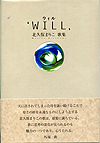
| Title | : | 'WILL, |
| Issued | : | 2005 |
| Publisher | : | Kadokawa Shoten |
Review:
by Mahito Tanba "Tanka Gendai" Jul., 2005 (Tanka Shinbun Sha)
This collection has very clear subject. I can feel Kitakubo's strength and boldness through her work.
by Yoko Aoki "Tanka Orai" Aug., 2005 (Nagarami Shobo)
Kitakubo's enthusiasm is well represented in this collection. I strongly feel her brilliance in tanka through her work which shows her feelings. by Tomoko Arimoto "Tanka" June, 2005 (Kadokawa Shoten) Strong sense of loss creates deep darkness. This darkness of soul must be agonizing in search for what she lost. However, her life will be deepened because of this loss.
by Takashi Tonozuka from the band of the book (Kadokawa Shoten)
It feels Kitakubo is trying to make the bond with her mother eternal in the series of tanka about her late mother. This collection is filled with strong love. Her thoughts deepened largely. It is truly impressive.
When the Music Stops
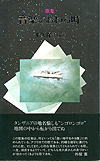
| Title | : | When the Music Stops |
| Issued | : | 2002 |
| Publisher | : | Nagarami Shobo |
Review:
by Tomoko Furuya "Tanaka" Feb. 2003 (Kadokawa Shoten)
Poetic ideas perfectly laid in the traditional form of tanka. Her brilliance sparkles. Her pureness and sensibility carried out through this collection. The series of Tanzanian wilderness leaves a very strong impression.
by Takashi Tonozuka from the band of the book (Nagarami Shobo)
Definitely, the series of tanka with the subject of Africa is the most impressive part of this collection. Precisely depicted scenery and visuality. You would feel as if Kitakubo is reciting by yourself.
I Want to Tell You in the Words of Waves
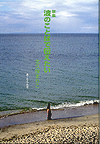
| Title | : | I Want to Tell You in the Words of Waves |
| Issued | : | 1999 |
| Publisher | : | Artland |
Review: by Takashi Tonozuka "TANKA" Jan. 2000 (Kadokawa Shoten) The book has a feel of contemporary poem collection although it is written in the form of traditional Japanese tanka poem. Black-and-white photos inserted helps reader's imagination greatly.
Messages
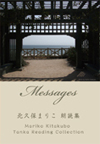
| Title | : | Messages (tanka reading collection audio CD) |
| Released | : | 2009 |
| Price | : | US$15.00 |
Produced an audio CD of my tanka reading collection, "Messages."
The CD includes more than sixty tanka from "On This Same Star" and "Cicada Forest" categorized in five themes. Prepackaged bilingual booklet also shows phonetic spelling of Japanse tanka. I hope it turns out to be helpful for those who are not farmiliar with Japanese letters.
1. memories
2. hope
3. my boy
4. to my mother
5. messages
Many famous writers wrote about me to date.
About the Poet:
Written by Amelia Fielden
(Poet and Translator of the modern Japanese Tanka)
Mariko Kitakubo is a poet who lives in Tokyo . A member of the Association of Contemporary Tanka Poet, and the Sakujitu Tanka Society, Kitakubo is active in writing and performing. To date she has published the following tanka collections:
I Want to Tell You in the Words of Waves (1999, Artland)
When the Music Stops (2002, Nagarami Shobo)
“Will” (2005, Kadokawa Shoten)
As a performance poet, she has appeared more than 20 times, commencing with her poetic perform in the Marathon Reading at Hama Rikyu Garden in Tokyo in 2000. In September 2005, Kitakubo gave a reading to music of her own tanka for the audience at the launch of Amelia Fielden's Still Swimming collection in Camberra , Australia .
Kitakubo and Fielden are scheduled to perform their work together at the Haiku and Tanka Festival in Vancouver, Cananda, in May 2006.
